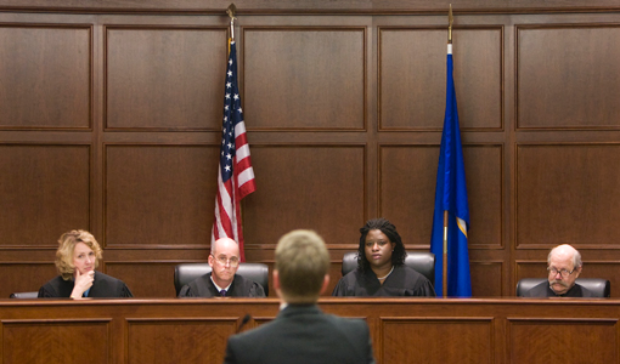One of the first things you notice when entering Casa Guadalupana Catholic Worker house is a plaque emblazoned with a quote from the Letter to the Hebrews: “Be not forgetful to entertain strangers, for thereby some have entertained angels unaware.” At Casa Guadalupana, angels come in many disguises: a woman who had been sleeping under a bridge with her three children; a woman whose boyfriend broke her arm; children who like to stay up until late at night and protest loudly when bedtime comes. Despite the brokenness and the chaos of people’s lives, Casa Guadalupana is a place of palpable grace. This is not a shelter, but a home – one where people treat each other as fellow members of the household of God.
Casa Guadalupana developed out of conversations among several Catholic Studies faculty members at St. Thomas and the pastor and people of Our Lady of Guadalupe parish on the West Side of St. Paul. There is both a deep reservoir of Catholic faith among the Latino people of the West Side and unmet economic need. At the same time, the University of St. Thomas Catholic Studies program saw the opportunity to break down the divide between academic mission and the Works of Mercy. In August 1999, professor Terry Nichols put a down payment on a house on State Street and lead a crew of volunteers in renovating the house. Volunteers Kelly Johnson, José Cuellar and Gael Fonken moved in shortly thereafter and began receiving homeless women and children. Casa Guadalupana attempts to integrate service with prayer, liturgy and Catholic social thought. The Casa Guadalupana has frequent Masses at the house, and sponsors a series of discussions in which faculty and students of the St. Thomas Center for Catholic Studies have played a prominent role.
Much of the inspiration for the Casa comes from Dorothy Day, one of the founders (with Peter Maurin) of the Catholic Worker Movement. As Dorothy Day understood it, the Gospel response to suffering was simple and personal: if someone is hungry, we should feed them, not rely on the state or someone else to do it. To see the face of Christ in another person is a call to charity, but it is also much more than that. For Dorothy Day – who had an intense devotion to the Eucharist – this means that we must treat others not simply as objects of our charity, but as members of our very own body, which is Christ’s body. In practice, this means sharing life with the poor in houses of hospitality and offering witness against assaults on the dignity of life in our society, from abortion to economic exploitation to war.
“Be not forgetful to entertain strangers, for thereby some have entertained angels unaware.”
Such is the vision that animates the Casa. The live-in community, now led by St. Thomas graduate Brigid O’Neil, provides a nurturing environment for women and children to stay for a month or two while they get back on their feet. Most of the guests who have been at the house have moved on to jobs and apartments of their own. At the same time, this service is tied into the Center for Catholic Studies through the Peter Maurin Program of the John A. Ryan Institute for Catholic Social Thought. In addition to a class taught on the Catholic Worker Movement, the Peter Maurin Program sponsors speakers, scholarships and discussions that advance the vision of the house. Service and activism are thereby rooted in serious reflection on the Church’s social teachings.
Anyone who would like to get involved in the Casa is welcome. The house is run entirely on individual donations (not tax deductible) which pay the mortgage, buy food, etc. Any dollar amount is appreciated. To volunteer or come to the roundtable discussions, call the number listed below. And, finally, Casa Guadalupana is sustained by grace, so please keep the house in your prayers.







